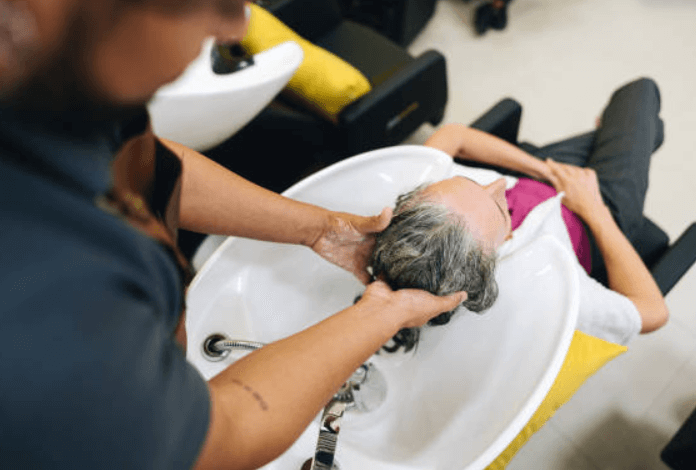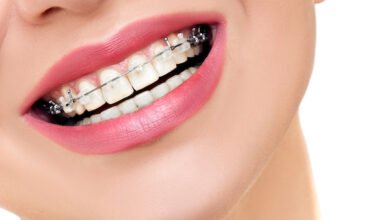
How Do Sulfates in Shampoo and Conditioner Affect Your Scalp?
Sulfates are a common ingredient in many shampoos and conditioners, known primarily for their foaming properties. These surfactants, such as sodium lauryl sulfate (SLS) and sodium laureth sulfate (SLES), are included in products to create a rich lather that helps to lift and remove dirt, oil, and impurities from the scalp and hair. However, while sulfates can effectively clean the scalp, their impact on scalp health is a subject of debate. Here is how sulfates in shampoo and conditioner affect your scalp and what you might consider if you’re thinking about switching to sulfate-free options.
1. Understanding Sulfates
Sulfates are chemical compounds derived from sulfuric acid. In shampoos and conditioners, they function as surfactants, which are substances that lower the surface tension between liquids and solids. This action helps the shampoo and conditioner to spread more easily and create a lather. Sulfates are effective at cleaning because they emulsify oils and dirt, allowing them to be rinsed away. However, this cleaning power can have both positive and negative effects on your scalp and hair.
See also: Do You Know Asim Riaz Net Worth in Rupees 2023
2. The Cleaning Power of Sulfates
One of the primary benefits of sulfates in shampoo and conditioner is their ability to effectively cleanse the scalp. They break down oils and dirt, which helps to keep your hair and scalp clean. For people with oily scalps or those who use styling products frequently, sulfates can be particularly effective at removing buildup and maintaining cleanliness. The foaming action provided by sulfates can also make the shampooing process feel more thorough, enhancing the overall user experience.
3. Potential Irritation and Dryness
Despite their effectiveness, sulfates can also have drawbacks. One significant concern is their potential to cause irritation. Sulfates can strip away not only dirt and excess oil but also the natural oils produced by your scalp. This can lead to dryness and irritation, especially for individuals with sensitive skin or pre-existing scalp conditions such as eczema or psoriasis. Over time, this drying effect can compromise the scalp’s natural barrier, leading to discomfort and increased sensitivity.
In addition to irritation, sulfates can contribute to dryness. For those with naturally dry or brittle hair, sulfates may exacerbate these issues by removing too much moisture from both the scalp and hair. This can result in a flaky, itchy scalp and hair that feels parched and prone to breakage. If you find that your scalp becomes dry or irritated after using traditional shampoo and conditioner with sulfates, you might consider exploring sulfate-free alternatives.
4. Impact on Color-Treated Hair
Sulfates can also affect color-treated hair. The strong cleansing action of sulfates can strip away hair dye more quickly, leading to faster color fading. For those who invest in color treatments, using sulfate-free shampoos and conditioners can help extend the life of their color and maintain its vibrancy. Sulfate-free formulas are generally gentler on hair, reducing the rate of color loss and helping to preserve the hue of your hair for longer.
5. Alternatives to Sulfates
If you’re concerned about the potential negative effects of sulfates, you might consider switching to sulfate-free shampoos and conditioners. These products use alternative surfactants that are generally milder and less likely to strip away natural oils. Ingredients like cocamidopropyl betaine or decyl glucoside are often used in sulfate-free formulations to provide effective cleansing without the harsh effects of sulfates.
Sulfate-free shampoos and conditioners can be particularly beneficial for individuals with sensitive scalps, dry hair, or color-treated hair. They can help maintain a healthy scalp environment by preserving natural oils and minimizing irritation. Additionally, these products often include added moisturizing and nourishing ingredients to support scalp and hair health.
6. Choosing the Right Products
When choosing shampoo and conditioner, it’s important to consider your specific hair type and needs. For example:
Oily Scalp: If you have an oily scalp and need a deep clean, a sulfate-containing shampoo may be effective. However, balancing it with a good conditioner is crucial to avoid excessive dryness.
Dry or Sensitive Scalp: For a dry or sensitive scalp, a sulfate-free shampoo and conditioner would be more appropriate. Look for products designed to hydrate and soothe the scalp.
Color-Treated Hair: If you have color-treated hair, opt for sulfate-free options to help prolong the vibrancy of your color.
7. Transitioning to Sulfate-Free Products
Switching from sulfate-containing to sulfate-free shampoos and conditioners can initially feel different. Sulfate-free products often produce less lather, which can be a change from the rich foam you might be used to. However, this does not mean they are less effective. The absence of sulfates can result in a gentler cleanse that better preserves your scalp’s natural moisture balance.
Conclusion
Sulfates in shampoo and conditioner play a significant role in cleansing by creating lather and removing oils and dirt. While they are effective at keeping the scalp clean, they can also cause dryness, irritation, and color fading. For those with sensitive scalps, dry hair, or color-treated hair, sulfate-free alternatives offer a milder, less stripping option. By understanding how sulfates affect your scalp and considering your specific hair care needs, you can make more informed choices about the best shampoo and conditioner for your hair health.




